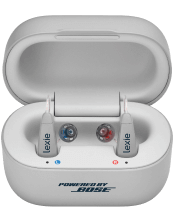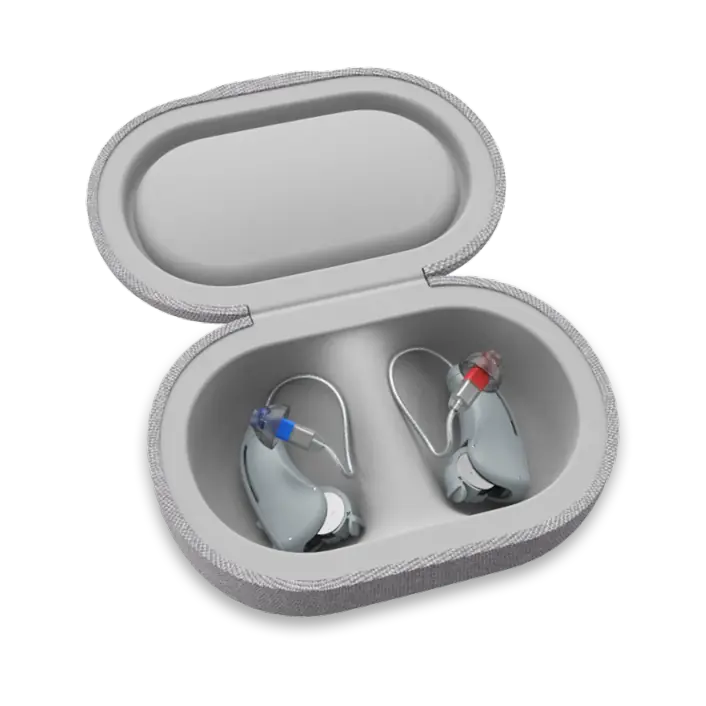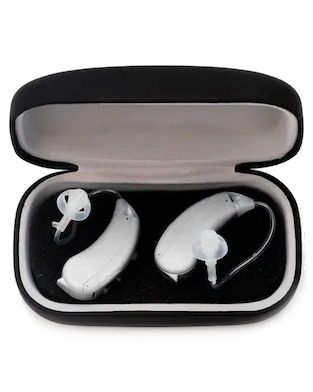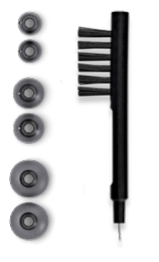What Diseases Affect Hearing?
Published: November 25, 2020
Updated: July 11, 2022
There is a general assumption that the natural aging process and exposure to loud noises are some of the only causes of hearing difficulties, but these are not the only causes as diseases affect hearing too.
The human body is a unique system, whereby the sum of its parts makes a functioning whole. Sometimes illnesses and diseases in one area of the body may affect another, in this case, hearing. Certain diseases, as a side effect, can negatively impact your ability to hear.
Diseases that can affect your hearing
Tuberculosis
Tuberculosis (TB) is a bacterial infection that affects the lungs. The spread of the bacteria occurs when an infected person coughs or sneezes into the environment. A person may not be displaying any symptoms, but when present these may include coughing, fever, night sweats, and weight loss.
The middle ear is one area that can be affected when someone has TB, as it can lead to different sized perforations in the eardrums due to TB otitis media. These perforations may lead to a person not hearing well or feeling an imbalance in the pressure of the ear.
The second side-effect of TB on hearing is related to the long-term treatment required. Medications that are used to treat Multi-Drug-Resistant TB are described as being ototoxic, oto- meaning ear, and toxic- meaning poison, put together poisonous medicine to the ears. These medications damage the hair-like cells, in the cochlear, that pick-up sounds. Most of the time ototoxic medication has a gradual effect on the hearing. In some cases, the hearing can be affected within days of starting the treatment. You should be informed prior to starting a treatment regime with ototoxic medication. It is however recommended that you take these medications in the treatment of the disease if prescribed by your healthcare provider.
Diabetes
This disease is characterized by a high blood sugar level. A diabetic is a person whose body is unable to break down these high sugar levels. As a result, external insulin is required to maintain a balanced sugar level within the body.
Diabetics are reportedly two times more likely to present with hearing loss as opposed to a person with normal blood sugar levels. The link between diabetes and hearing occurs when the nerves and blood vessels of the inner ear get damaged. The cells of the inner ear are sensitive, and when damaged it can lead to the diabetic individual suffering from hearing loss.
Heart disease
Hypertension – which is due to high blood pressure – coronary artery disease and congestive heart failure are a group of heart diseases. Each heart disease is characterized by difficulty in your heart’s ability to send blood through to the different parts of your body. With regards to hearing, it would cause reduced blood flow to your hearing system.
The hair cells that pick-up sounds in the cochlear rely on the continuous blood supply to be able to function properly. A limited blood supply to these cells, because of heart disease, often leads to the cells being damaged. Once the cells are damaged it leads to an impaired hearing system, making it difficult for you to hear well.
Influenza
Often called “flu” for short, occurs more during the colder months of the year. The symptoms include fever, fatigue, and sore muscles. On occasion, it can lead to either temporary or permanent hearing loss.
When you are experiencing flu-like symptoms, it can affect your ears as they might feel blocked. This is due to a continuous increase of fluid in the ear due to a blocked eustachian tube. Most of the time this improves as you recover from the flu, however, this might not always be the case. Even after you feel better, you might still experience a blocked sensation in the middle ear. When this pressure build-up does not level out, it can cause the eardrum to burst, causing a perforation. This can lead to hearing loss.
Meningitis
The infection of the brain and spinal cord membranes that leads to inflammation is called meningitis. Although caused by a viral infection, it can also be due to a bacterial or fungal infection. Symptoms associated with meningitis include headaches, fever, nausea, vomiting and a stiff neck. Hearing loss is the most common side effect of bacterial meningitis, especially in children.
In severe cases of meningitis, the infection can spread to the cochlea causing hair cell damage. It can also cause inflammation of the auditory nerve that runs between the ear and the brain. If caught early enough the risk of hearing loss can be reduced.
Rheumatoid Arthritis
A disease of mistaken identity. Rheumatoid Arthritis occurs when the body produces antibodies to fight substances that it identifies as being foreign to the body. These misidentified substances are not foreign but are normal in the body. The body incorrectly identifying these substances causes pain and inflammation of the joints. Gradually, it damages cartilages, bones and tissue surrounding the inflamed area.
The exact science resulting from hearing loss is unknown. For a group of people, the swelling affects the bones in the middle ear. Hearing loss may also present itself as a side effect of the treatment of Rheumatoid Arthritis, with non-steroidal anti-inflammatory drugs (NSAID).
Check your hearing
If you currently or in the past have had any of these diseases known to affect hearing, it is worth considering having your ears checked. If you are nervous to seek help immediately or are unsure if you have a definite hearing problem, Lexie’s free, online hearing test is for you. It allows you to perform a quick and reliable hearing screening test, in the comfort of your home. Recommendations will be made based on your hearing results. It may indicate the need for a more in-depth assessment from a qualified hearing health professional. Our team of hearing experts will be able to help you on your journey to healthy hearing.
Diseases and hearing loss do not stay isolated, and neither should you.






